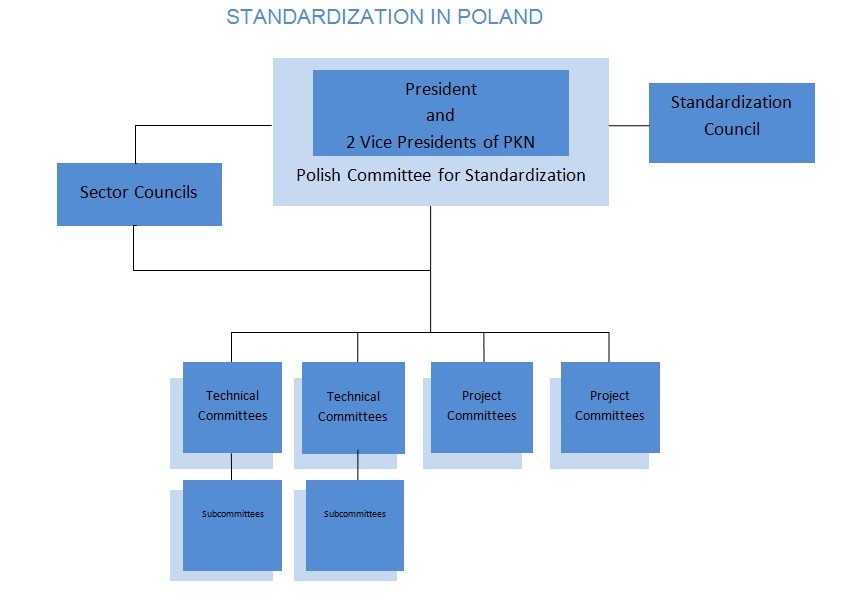What we do
The Polish Committee for Standardization (Polski Komitet Normalizacyjny – PKN) is a national standards body responsible for the organization of standardization activities. The PKN is not a government agency, but a body governed by public law. The basis for its operation is the Polish Standardization Act of 12 September 2002.
The PKN’s main responsibilities are to:
- organize and supervise activities related to the development and dissemination of the Polish Standards and other standardization documents;
- determine the status and directions of the development of standardization activities;
- approve and withdraw the Polish Standards and other standardization documents;
- represent the Republic of Poland in international and regional standardization bodies, participate in their works, and act in standardization-related matters at an international level;
- initiate and organize the work of technical committees;
- organize and conduct training, publishing, promotion and information activities with regard to standardization and related topics;
- provide opinions on drafts of standardization-related implementing acts;
- participate in the national system of notification of standards and legislative acts.
The national standards body must be impartial and independent of any interest group, and standardization works are performed by the PKN’s Technical Bodies (TBs). The PKN offers to all stakeholder circles interested in standardization the possibility to participate in the works of respective TBs: Technical Committees (TCs), Project Committees (PCs) and Technical Subcommittees (SCs).
Benefits of participation in standardization activities
- competitive advantage;
- prospects of reaching a wider market with less design and research
expenses; - ability to directly influence the content of the standards;
- easier access to information ‘from the market’;
- business networking opportunities;
- prestige.
Standardization plays an important role in the market economy – it guarantees quality and contributes to the competitiveness of Polish products and services. The purpose of standardization is to:
- rationalize production and services by applying recognized technical rules or organizational solutions;
- eliminate and prevent technical barriers to trade;
- ensure protection of life, health, environment, consumers’ interest, and occupational safety;
- improve functionality, compatibility and interchangeability of products, processes and services, and to regulate their diversity;
- ensure quality and reliability of products, processes and services;
- take measures in order to ensure that national interest is taken into account in European and international standardization;
- facilitate understanding by providing terms, definitions, markings and symbols for common use.
Rules of standardization:
- openness and wide accessibility;
- focus on public interest;
- voluntary participation in the process of development and application of the standards;
- ensuring participation in the process of development of the standards by all stakeholders;
- consensus as a basis for agreeing the content of the standards;
- independence from public administration or any interest group;
- uniformity and consistency of the standards;
- use of proven achievements of science and technology;
- compatibility with the principles of European and international standardization.
The Polish standardization system consists of the following organizational components:
- The Polish Committee for Standardization (PKN) – the national standards body (a public-budget entity).
- The Standardization Council (RN) – a collegiate consultative and advisory body of the PKN.
- Technical Bodies – collegiate bodies set up by the President of the PKN for standardization works.

